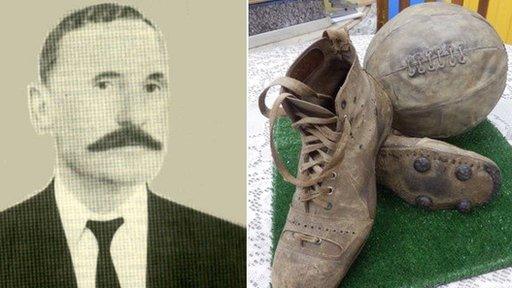Scotland's Brazilian football pioneer honoured in Busby
- Published
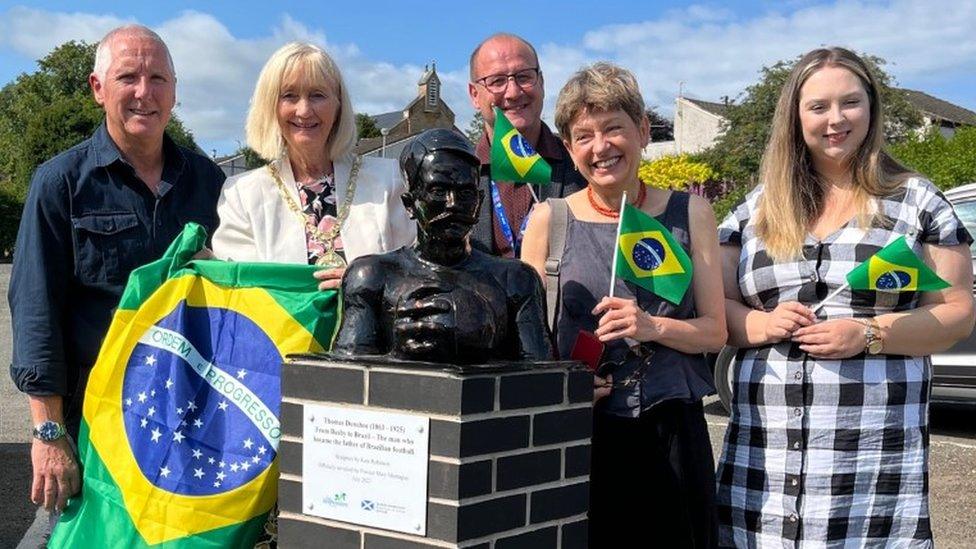
The sculpture was created by artist Kate Robinson
A Scotsman who helped pioneer football in Brazil has been honoured with a statue in his home town.
Thomas Donohoe, from Busby, East Renfrewshire, moved to Brazil to work in a textile factory outside Rio de Janeiro.
While there, he helped arrange the country's first organised football match, which was played in 1894.
It his hoped the new sculpture will support cultural and sporting links between Busby and his adopted homeland.
Donohoe had been employed as a print worker in the local cotton mills in Busby before Scotland's declining cotton industry prompted him to emigrate.
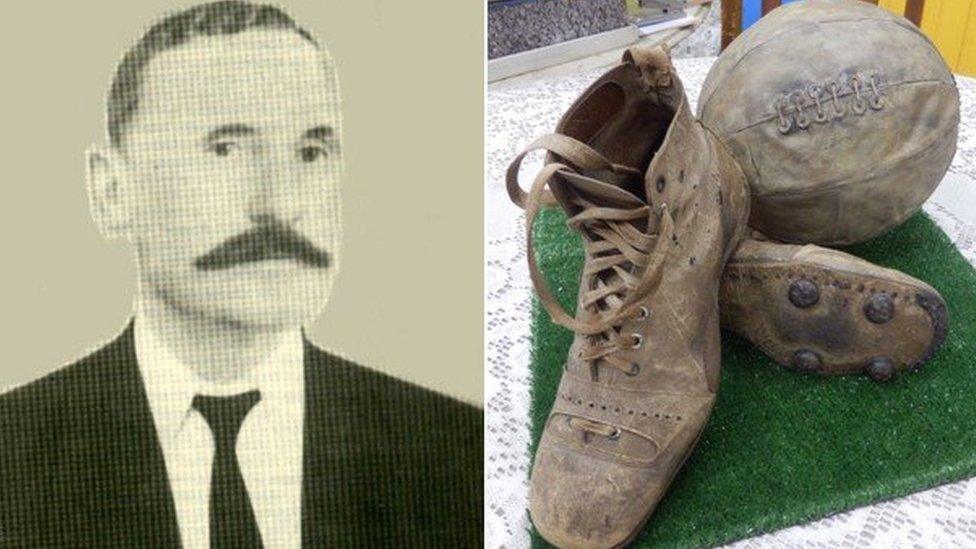
Donohoe in 1903 and a replica of his boots and a football on display in Bangu
He set sail from Southampton in May 1894 aboard the SS Clyde, leaving behind his wife Elizabeth and their two young sons.
When he arrived in Bangu near Rio, he began working in the village's textile factory, which was staffed by other British ex-pats as well as native Brazilian workers.
Eventually he wrote a letter to his wife asking her and their children to join him - and to bring a football.
Shortly after Elizabeth's arrival in September 1894, the first football match in Brazil took place in the field beside the textile factory.
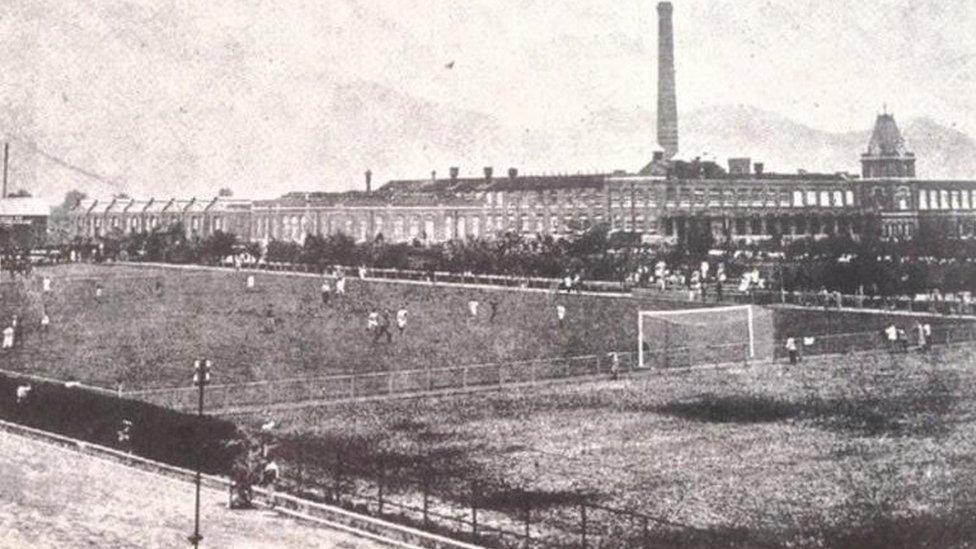
Football was played beside the textile factory in Bangu
Today the local Bangu football team, Bangu Atlético, take great pride in the contribution Thomas Donohoe made to Brazilian football.
In 2014, they unveiled their own statue of Donohoe to coincide with the World Cup which was hosted in Brazil that year.
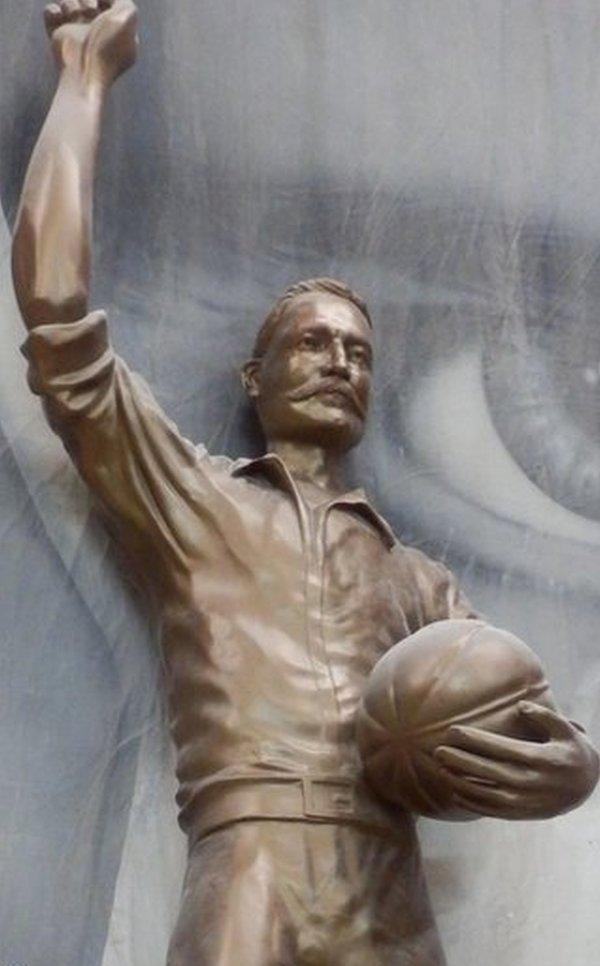
The statue of Thomas Donohoe in Bangu
Donohoe's contribution to football in Brazil has earned him the name "the father of Brazilian football" - one he shares with another pioneer, Charles Miller.
East Renfrewshire provost Mary Montague said she was delighted to see the hometown sculpture unveiled.
"Already honoured with a sculpture in Brazil," she said, "I think it is only right that we also pay tribute to football legend Thomas Donohoe, in his home town of Busby."
Related topics
- Attribution
- Published17 October 2013
